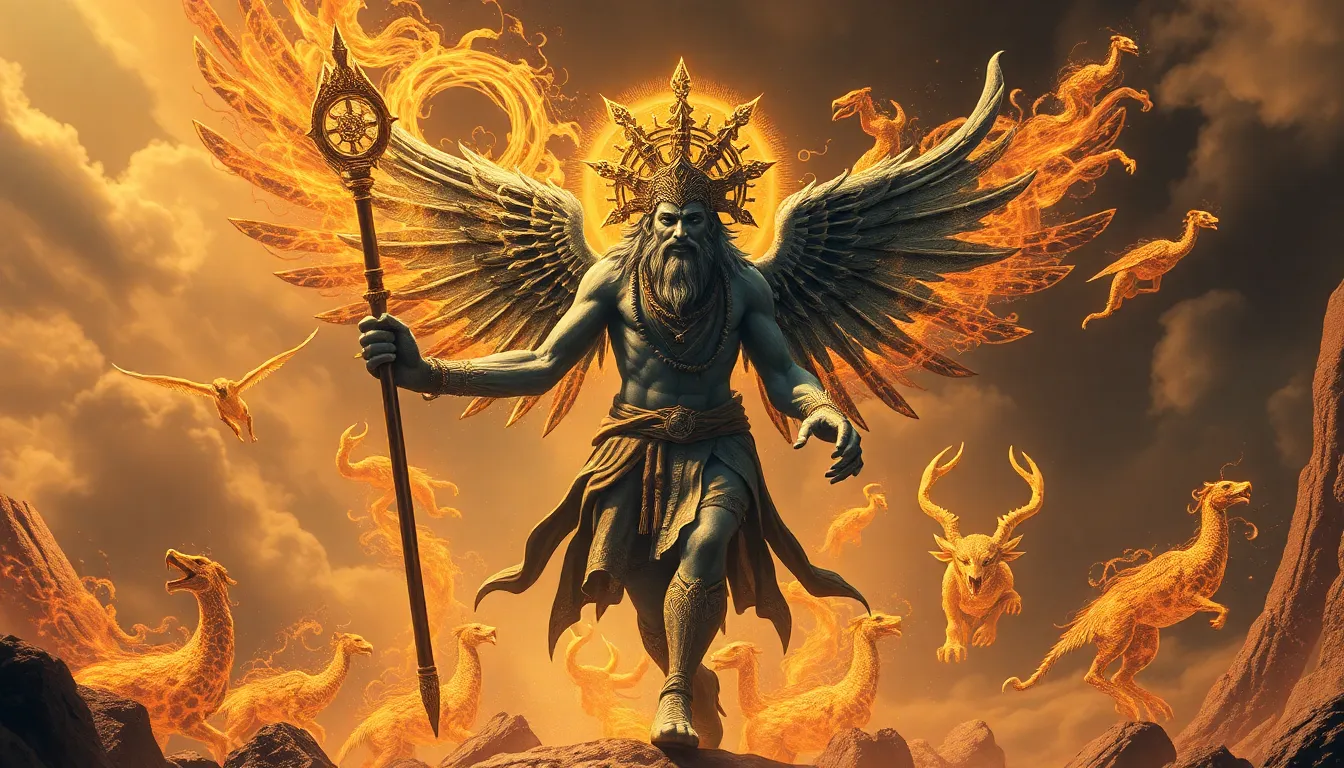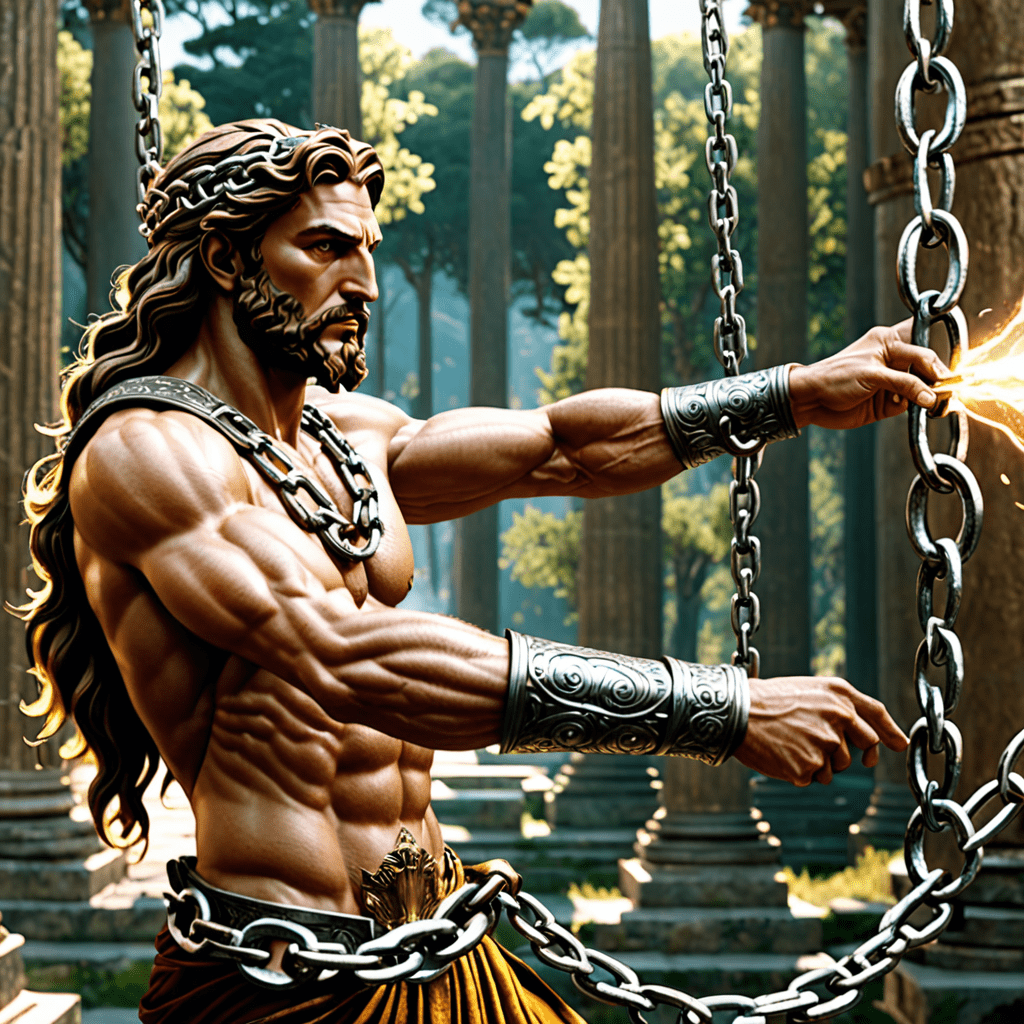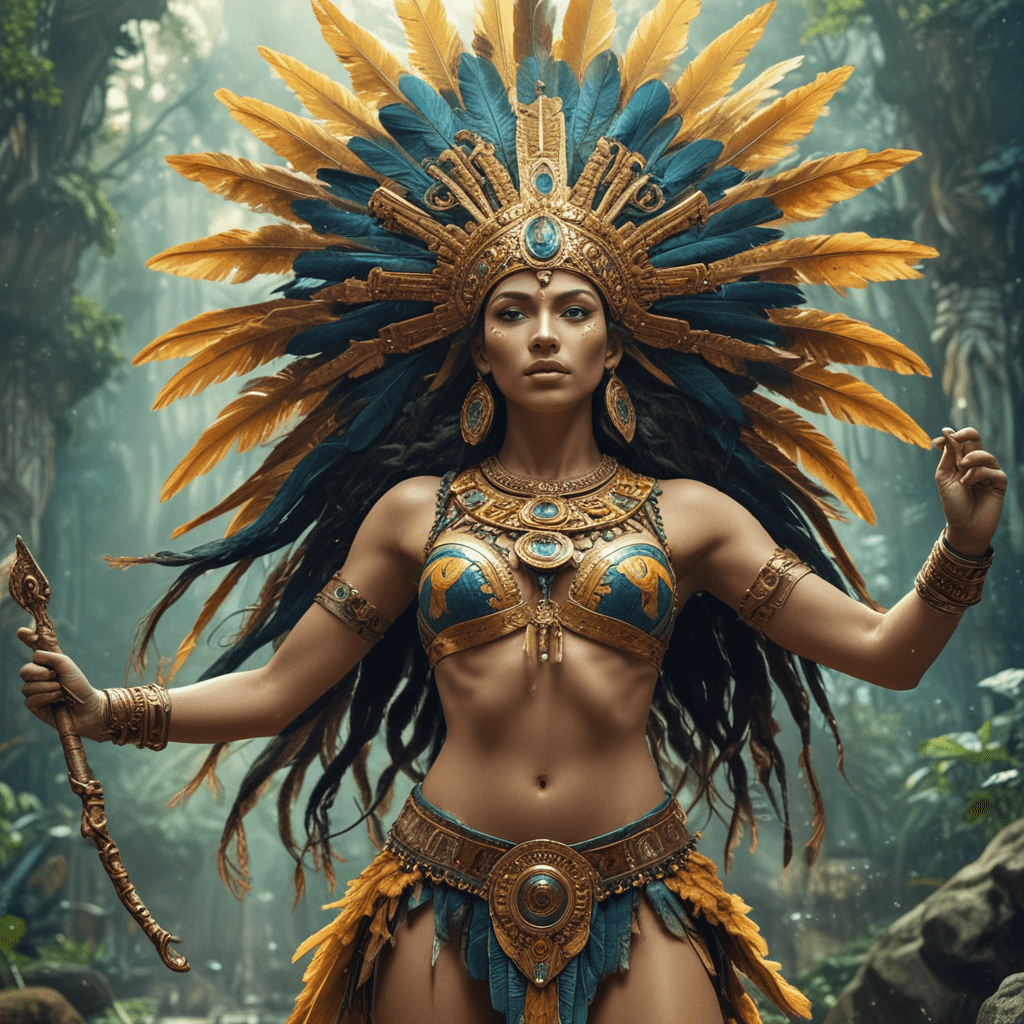The Most Fascinating Myths of Ancient Deities and Their Powers
I. Introduction
Myths of ancient deities have captivated human imagination for centuries, serving as narratives that explain the mysteries of life, nature, and existence. Ancient deities represent the divine personifications of natural forces and human experiences, embodying the beliefs of cultures long past. These myths are crucial for understanding the values, fears, and aspirations of ancient civilizations, as they provide insights into societal norms, rituals, and the human condition.
This article will explore some of the most fascinating myths of ancient deities across various cultures, highlighting their powers and the roles they played in shaping the worldviews of their worshippers.
II. The Creation Myths: Birth of the Gods
Creation myths are foundational narratives that describe the origins of the universe, gods, and humanity. Across cultures, these myths often reveal the conflict between chaos and order, illustrating how divine beings emerged from a primordial void or a state of disarray.
Overview of Different Creation Myths:
- In many cultures, a chaotic entity or a primordial ocean precedes creation, from which deities arise.
- Other myths depict creation as a result of a cosmic battle between good and evil forces.
Case Study: The Enuma Elish and the Babylonian Pantheon: One of the most well-known creation myths comes from ancient Babylon, known as the Enuma Elish. This epic describes how the god Marduk defeats the chaos monster Tiamat, separating the waters and creating the world from her body. Marduk’s victory not only establishes order but also solidifies his position as the chief deity of the Babylonian pantheon.
III. Greek Mythology: Gods of Olympus and Their Powers
In Greek mythology, the Olympian gods reside atop Mount Olympus, each governing different aspects of life and nature. These deities are characterized by their human-like qualities and complex personalities.
Powers and Domains of Major Deities:
- Zeus: King of the gods, god of the sky and thunder.
- Hera: Goddess of marriage and family, protector of women.
- Poseidon: God of the sea, earthquakes, and horses.
Fascinating Myths: The Titanomachy is a significant myth that narrates the epic battle between the Olympian gods and the Titans. Zeus leads the charge against the Titans, ultimately establishing the Olympian rule and bringing order to the cosmos.
IV. Egyptian Deities: Symbols of Life and Death
The Egyptian pantheon is rich with deities that embody various aspects of life, death, and the afterlife. Each god and goddess plays a unique role in the cycle of existence, reflecting the Egyptians’ deep reverence for life and the mysteries of death.
Key Deities:
- Osiris: God of the afterlife, resurrection, and agriculture.
- Isis: Goddess of magic, motherhood, and fertility.
- Ra: Sun god, symbolizing creation and life.
Fascinating Myths: The story of Osiris is particularly notable. Osiris is killed by his brother Set, only to be resurrected by Isis. This myth emphasizes themes of death, rebirth, and the eternal cycle of life, which were central to ancient Egyptian beliefs.
V. Norse Mythology: The Might of the Aesir and Vanir
Norse mythology is characterized by its pantheon of gods known as the Aesir and Vanir, who govern various realms and aspects of existence. The myths often explore themes of bravery, fate, and the inevitable end of the world.
Major Gods and Their Attributes:
- Odin: The All-Father, god of wisdom, war, and death.
- Thor: God of thunder, protector of mankind.
- Freyja: Goddess of love, beauty, and fertility.
Fascinating Myths: Ragnarok is perhaps the most famous myth in Norse mythology, depicting the end of the world and the death of many gods. This myth illustrates the cyclical nature of creation and destruction, emphasizing that death leads to rebirth.
VI. Hindu Mythology: The Rich Tapestry of Deities
Hindu mythology is vast and diverse, featuring a multitude of deities, each with various forms and manifestations. The concept of avatars, or divine incarnations, allows gods to interact with the world in different ways.
Key Figures:
- Brahma: The creator god, responsible for the creation of the universe.
- Vishnu: The preserver, who incarnates in various forms to restore cosmic order.
- Shiva: The destroyer, representing transformation and regeneration.
Fascinating Myths: The Ramayana and the Mahabharata are two of the most significant epics in Hindu mythology, showcasing the ideals of dharma (duty/righteousness) and the complexities of human nature through the lens of divine actions.
VII. Mesopotamian Deities: The Powers of the First Civilizations
The deities of Mesopotamia, including the Sumerian, Akkadian, and Assyrian pantheons, were central to the lives of some of the world’s earliest civilizations. These gods were associated with natural elements and human endeavors.
Major Deities:
- Anu: The sky god, representing authority and kingship.
- Enlil: God of wind and storm, often seen as a king of the gods.
- Inanna: Goddess of love, war, and fertility.
Fascinating Myths: The Epic of Gilgamesh is a remarkable tale from Mesopotamia, chronicling the journey of King Gilgamesh as he seeks immortality. This epic explores themes of friendship, the human condition, and the quest for eternal life.
VIII. Native American Mythology: The Spirits of Nature
Native American mythology is incredibly diverse, encompassing the beliefs and stories of various tribes across North America. These myths often emphasize the interconnectedness of nature and the spiritual world.
Overview of Diverse Beliefs:
- Each tribe has its unique set of deities and spirits, often linked to natural elements and animals.
- Myths frequently convey moral lessons and cultural values, emphasizing respect for the earth.
Key Figures:
- Great Spirit: A central figure in many tribes, representing the source of all life.
- Coyote: A trickster figure, often teaching lessons through his antics.
The myths of Native American cultures highlight the importance of harmony with nature and the spiritual significance of the world around them.
IX. Conclusion
The myths of ancient deities provide a window into the beliefs, values, and experiences of different cultures throughout history. From the chaos of creation to the intricate tales of gods and heroes, these narratives have shaped human understanding of the universe. By studying these myths, we gain insights into how ancient peoples made sense of their world, establishing a connection that continues to resonate today.


